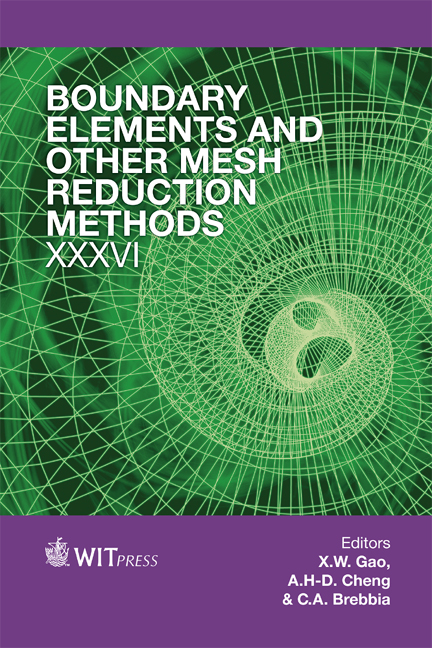A SVD Accelerated Kernel-independent Fast Multipole Method And Its Application To BEM
Price
Free (open access)
Transaction
Volume
56
Pages
13
Page Range
431 - 443
Published
2014
Size
486 kb
Paper DOI
10.2495/BEM360351
Copyright
WIT Press
Author(s)
Yanchuang Cao, Lihua Wen & Junjie Rong
Abstract
The kernel-independent fast multipole method (KIFMM) proposed by L. Ying et al. is of almost linear complexity. In the original KIFMM the time-consuming M2L translations are accelerated by FFT. However, when more equivalent points are used to achieve higher accuracy, the efficiency of the FFT approach tends to be lower because more auxiliary volume grid points have to be added. In this paper, all the translations of the KIFMMare accelerated by using the singular value decomposition (SVD) based on the low-rank property of the translating matrices. The acceleration of M2L is realized by first transforming the associated translating matrices into more compact form, and then using low-rank approximations. By using the transform matrices for M2L, the orders of the translating matrices in upward and downward passes are also reduced. The improved KIFMM is then applied to accelerate BEM. Numerical results show that, compared with the original KIFMM, the present method can reduce about 40% of the iterating time and 25% of the memory requirement. Keywords: boundary element method, kernel-independent fast multipole method, singular value decomposition, matrix compression.
Keywords
boundary element method, kernel-independent fast multipole method, singular value decomposition, matrix compression





